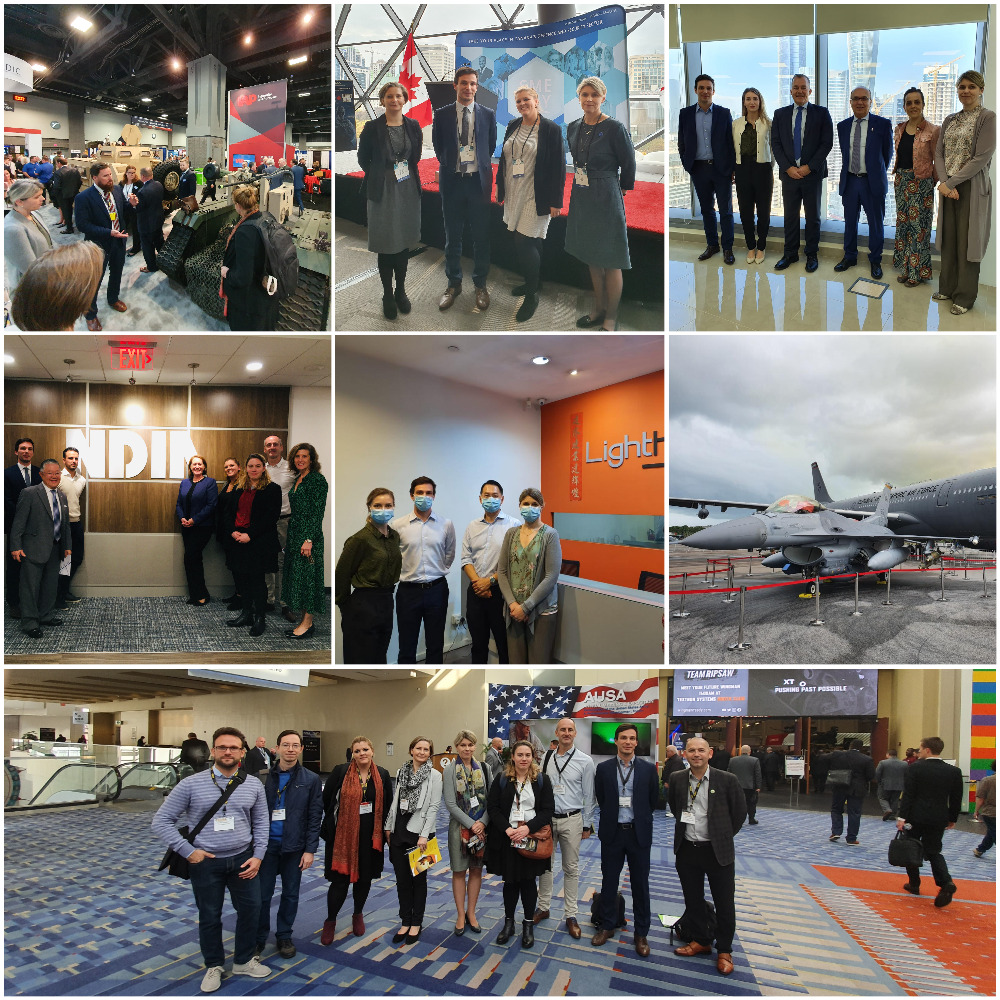Strand 1 of KETs4Dual-Use project comes to an end
Strand 1 of EU KETs4Dual-Use (K4DU) project officially finished on 1 May 2020. During the 18-month journey, the Partnership carried out preliminary activities and set basis in order to act as a “springboard” for European dual-use companies, notably SMEs, wishing to access international markets, with the aim of integrating global value chains, and to facilitate the development of sustainable long-term partnerships from 2021 onwards.
The project objective was four-fold:
1. To select the most promising dual-use market segments for KETs cross-fertilization;
2. To identify and validate targeted third (non-EU) countries;
3. To trailblazing the KETs dual-use markets beyond the EU by organising a series of “Fact-finding missions” in selected third countries
4. To form a sustainable partnership with a long-term agenda of supporting SMEs with regards to the access of dual use markets in third countries.
K4DU partnership collectively has over 200 members with various competencies in the field of dual-use technologies and related applications. One of the main objectives was therefore to identify the most promising dual-use market segments in relation to cross‐cutting KETs that can address clear industrial and market needs in selected third countries. The exercise of ecosystem mapping, carried out by means of a survey among its dual-use SME members, identified software, design & development tools, cameras, components and test & measurement equipment, closely followed by sensors, as products and services which are common to the SME members of four organisations. In the field of aeronautics and space, these technologies are mostly being integrated or used in combination with drones and satellites. Concerning the security sector, they are applied in the field of homeland security, for protecting critical infrastructure, including cyber-infrastructure, and to for counter-drone measures. In the field of defense, the main user is the Army Ground Forces, followed by Navy and Air Forces.
Furthermore, the vast majority of respondents clearly indicated interest for United States, closely followed by Canada, which represented a slight surprise. Asian countries have surpassed the Gulf countries as the second most interesting region. After having elaborated a market intelligence roadmap on the needs and opportunities in the dual-use sector in the three regions (North America, Asia and the Gulf), the Partnership narrowed down the number of target countries to the USA, Canada, the United Arab Emirates and Singapore.
Fact-finding missions to these countries enabled the partnership to establish personal contacts and to build mutual trust with potential local partners and to evaluate the potential capacity of the partnership against the industrial and market needs in third countries in-situ. First discussions have allowed identification of promising collaboration perspectives, which will be further explored by organising European Dual-Use SME delegations to targeted third countries. The partnership decided not to focus on the US dual-use market in the short & mid-term due to its complex structure, numerous hurdles and a need for a high initial investment exceeding the limits of the Partnership's future actions.
Finally, the work carried out in the K4DU project can be considered as a clear indicator of willingness to form a sustainable partnership, which was further elaborated in a form of a Joint International Strategy (JIS), a set of documents outlining partnership’s “European” vision with an international perspective. The latter sets common goals, defines strategic actions vis-à-vis targeted third countries and includes an implement a roadmap on joint actions and services aiming to provide European dual-use SMEs with a level-playing field on a global level.
The K4DU Partnership demonstrated that security & defence-related clusters, National Defence Industry Associations (NDIAs) and non-defence industrial clusters play an important role in facilitating the development of SMEs within competitive global markets by providing contacts to international industry actors and privileged access to information on the functioning of markets and, more specifically, a global value chain system in order to facilitate business development for dual-use SMEs.
Please do not hesitate to get in touch if you are interested in future actions of the Partnership targeting dual-use markets in Canada, the United Arab Emirates and Singapore!
